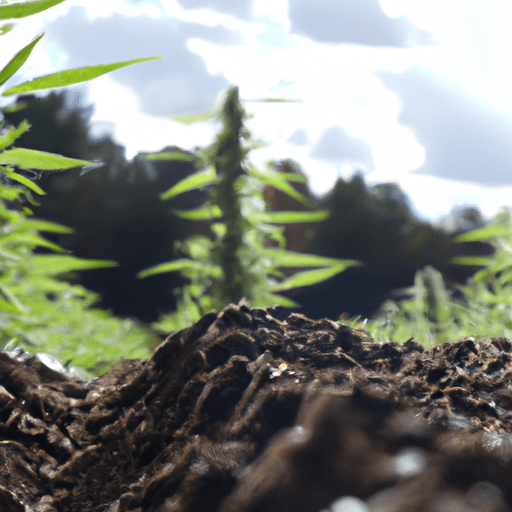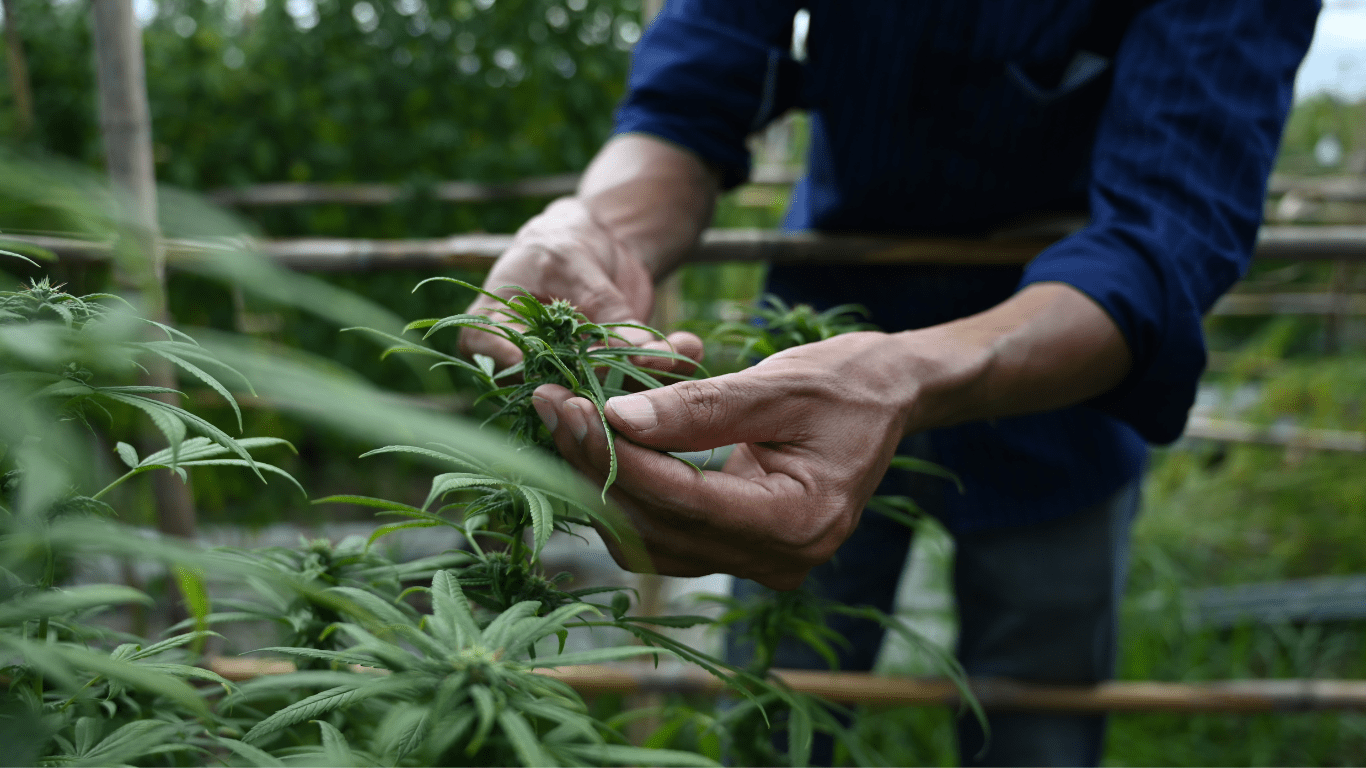The Benefits of Organic Hemp Farming for the Environment
Organic hemp farming is an increasingly popular agricultural practice that offers numerous environmental benefits. Hemp is a versatile crop that can be used for a variety of products, including food, clothing, and building materials. It is also a sustainable crop that can be grown without the use of synthetic fertilizers, pesticides, or herbicides. This makes it an ideal choice for farmers who are looking to reduce their environmental impact.
Organic hemp farming is beneficial to the environment in several ways. First, hemp is a fast-growing crop that can be harvested in as little as three months. This means that farmers can produce more hemp in a shorter amount of time, reducing the amount of land needed for cultivation. Additionally, hemp requires very little water to grow, making it an ideal crop for areas with limited water resources.
Organic hemp farming also helps to reduce soil erosion. Hemp’s deep roots help to stabilize the soil, preventing it from washing away during heavy rains. This helps to maintain the fertility of the soil, allowing farmers to produce more crops with fewer inputs.
Organic hemp farming also helps to reduce air pollution. Hemp is a carbon-neutral crop, meaning that it absorbs as much carbon dioxide from the atmosphere as it produces. This helps to reduce the amount of greenhouse gases in the atmosphere, which can help to mitigate the effects of climate change.
Finally, organic hemp farming helps to promote biodiversity. Hemp is a hardy crop that can be grown in a variety of climates and soil types. This allows farmers to cultivate a variety of crops in the same area, providing a habitat for a variety of wildlife.
Organic hemp farming is an environmentally friendly agricultural practice that offers numerous benefits to the environment. It is a sustainable crop that can be grown without the use of synthetic fertilizers, pesticides, or herbicides. Additionally, it helps to reduce soil erosion, air pollution, and promote biodiversity. For these reasons, organic hemp farming is an excellent choice for farmers who are looking to reduce their environmental impact.
How Organic Hemp Farming is Helping to Create Sustainable Jobs in Rural America
Organic hemp farming is providing a much-needed boost to rural America, creating sustainable jobs and providing economic stability to many communities. Hemp is a versatile crop that can be used for a variety of products, including food, clothing, paper, and building materials. It is also a renewable resource, meaning it can be grown and harvested again and again without depleting the soil.
Organic hemp farming is a labor-intensive process, requiring farmers to plant, cultivate, and harvest the crop. This creates jobs for people in rural areas, providing them with a steady income and the opportunity to stay in their communities. Hemp farming also helps to diversify the local economy, providing an alternative to traditional crops such as corn and soybeans.
Organic hemp farming is also beneficial for the environment. Hemp is a low-input crop, meaning it requires fewer resources to grow than other crops. It also helps to reduce soil erosion and improve soil fertility. Hemp is also a carbon-negative crop, meaning it absorbs more carbon dioxide from the atmosphere than it emits. This helps to reduce the effects of climate change.
Organic hemp farming is also helping to create sustainable jobs in rural America. Hemp is a renewable resource, meaning it can be grown and harvested again and again without depleting the soil. This helps to ensure that farmers have a steady income and that their communities remain economically stable.
Organic hemp farming is providing a much-needed boost to rural America, creating sustainable jobs and providing economic stability to many communities. It is a versatile crop that can be used for a variety of products, and it is also beneficial for the environment. Hemp farming is helping to diversify the local economy and create sustainable jobs in rural America.
The Impact of Organic Hemp Farming on Local Economies

Organic hemp farming has become increasingly popular in recent years, and its impact on local economies is undeniable. Hemp is a versatile crop that can be used for a variety of products, including food, clothing, and building materials. As a result, organic hemp farming has the potential to create jobs and stimulate economic growth in rural areas.
Organic hemp farming can create jobs in a variety of ways. First, it can create jobs in the farming sector. Organic hemp farmers need to hire workers to help with planting, harvesting, and processing the crop. Additionally, organic hemp farming can create jobs in the manufacturing sector. Hemp can be used to make a variety of products, such as clothing, paper, and building materials. This creates jobs in the manufacturing sector, as well as in the distribution and retail sectors.
Organic hemp farming can also stimulate economic growth in rural areas. Hemp is a low-maintenance crop that can be grown in a variety of climates and soil types. This makes it an ideal crop for farmers in rural areas, who may not have access to other types of crops. Additionally, hemp can be used to make a variety of products, which can be sold locally or exported to other markets. This can create additional economic opportunities for rural communities.
Finally, organic hemp farming can help to reduce environmental damage. Hemp is a sustainable crop that requires minimal inputs and produces fewer greenhouse gases than other crops. Additionally, hemp can be used to make biodegradable products, which can help to reduce the amount of plastic waste in the environment.
In conclusion, organic hemp farming has the potential to create jobs and stimulate economic growth in rural areas. Additionally, it can help to reduce environmental damage by producing fewer greenhouse gases and biodegradable products. For these reasons, organic hemp farming is an important part of the local economy.
The Growing Popularity of Organic Hemp Products in the Marketplace
Organic hemp products are becoming increasingly popular in the marketplace due to their numerous health benefits. Hemp is a variety of the Cannabis sativa plant species, and it is grown for its fiber, seed, and oil. Hemp is a sustainable crop that requires minimal water and fertilizer, and it is naturally resistant to pests and disease.
Organic hemp products are gaining popularity due to their high nutritional value. Hemp seeds are a rich source of essential fatty acids, proteins, vitamins, and minerals. Hemp oil is also a great source of omega-3 and omega-6 fatty acids, which are essential for healthy skin, hair, and nails. Hemp oil is also known to be beneficial for reducing inflammation and improving cardiovascular health.
Organic hemp products are also becoming popular due to their environmental benefits. Hemp is a renewable resource that can be grown without the use of pesticides or herbicides. Hemp is also a carbon-negative crop, meaning that it absorbs more carbon dioxide from the atmosphere than it produces. This makes hemp an excellent choice for those looking to reduce their carbon footprint.
Organic hemp products are also gaining popularity due to their versatility. Hemp can be used to make a variety of products, including clothing, paper, and food. Hemp is also being used to make biodegradable plastics, which are a great alternative to traditional petroleum-based plastics.
Organic hemp products are becoming increasingly popular in the marketplace due to their numerous health and environmental benefits. As more people become aware of the benefits of hemp, the demand for organic hemp products is likely to continue to grow.
The Challenges and Opportunities of Organic Hemp Farming in the U.S
Organic hemp farming in the United States is a rapidly growing industry that presents both challenges and opportunities for farmers. Hemp is a versatile crop that can be used for a variety of products, including food, clothing, and building materials. However, the legal status of hemp in the United States is complex and can be difficult to navigate.
The first challenge of organic hemp farming is the legal status of hemp. Hemp is a variety of the Cannabis sativa plant, which is also the source of marijuana. Hemp and marijuana are both classified as Schedule I drugs under the Controlled Substances Act, making them illegal to grow in the United States. However, the 2018 Farm Bill removed hemp from the list of controlled substances, allowing states to regulate hemp production. This has opened the door for organic hemp farming in the United States, but it is still a complex and ever-changing legal landscape.
The second challenge of organic hemp farming is the lack of infrastructure and resources. Hemp is a relatively new crop in the United States, and there is a lack of resources available to farmers. This includes a lack of seed varieties, processing facilities, and markets for hemp products. Additionally, organic hemp farming requires specialized knowledge and expertise, which can be difficult to find.
Despite these challenges, there are also many opportunities for organic hemp farmers in the United States. Hemp is a highly versatile crop that can be used for a variety of products, including food, clothing, and building materials. Additionally, hemp is a sustainable crop that requires fewer resources than other crops, making it an attractive option for farmers. Finally, the legal status of hemp is changing rapidly, and there is potential for the industry to grow significantly in the coming years.
Organic hemp farming in the United States presents both challenges and opportunities for farmers. While the legal status of hemp is complex and there is a lack of resources available, there is also potential for the industry to grow significantly in the coming years. For farmers looking to get involved in organic hemp farming, it is important to understand the legal landscape and the resources available. With the right knowledge and resources, organic hemp farming can be a profitable and sustainable venture.


